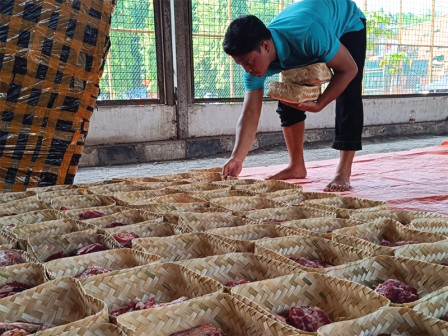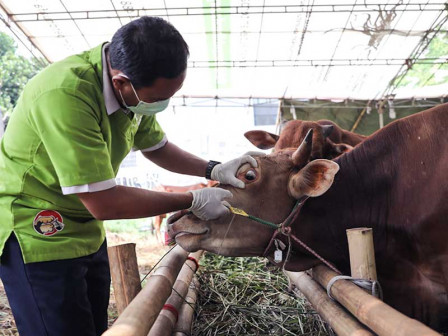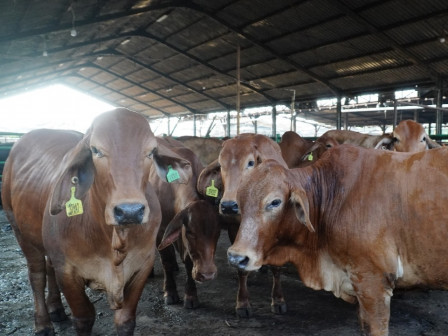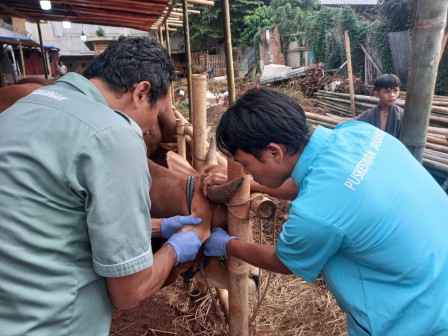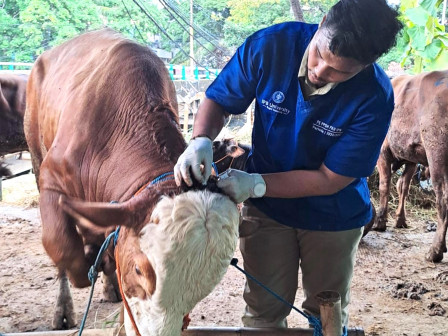LH Agency: Idul Adha Goes Green with Eco Packaging
Reported by Aldi Geri Lumban Tobing | Translated by Nugroho Adibrata
The Jakarta Environmental Agency (LH) urges the qurban (sacrificial) committee and the general public to conduct the qurban worship on Idul Adha the Day of Sacrifice by applying the principles of 'Eco Qurban'.
Don't leave qurban animal waste such as blood and entrails untreated until it spills out
It has been stated in Gubernatorial Regulation Number 10/2022 on Guidelines for Organizing the Slaughter of Qurban Animals.
Jakarta LH Agency Head, Asep Kuswanto explained the Eco Qurban means carrying out qurban without polluting the surrounding environment, both during and afterwards.
100 People Gain Knowledge of Procedures for Slaughtering Qurban Animals in N. Jakarta"Don't leave qurban animal waste such as blood and entrails untreated until it spills out, then throw it into gutters, ditches, and rivers," he expressed, Wednesday (6/12).
If qurban animal waste is not handled properly, it can make the environment uncomfortable because of the smell, thereby risking endangering the health of the local community. Moreover, dumping qurban animal waste into water bodies can damage the ecosystem.
"Simply put, fish in water can die if the waste from the stomachs of qurban animals is thrown there," he explained.
To avoid this, he urged Jakarta residents to handle qurban animal waste by burying it in a hole in the ground of at least one cubic meter for cattle measuring 400 to 600 kilograms and a minimum of 0.3 cubic meters for goats measuring 25 to 35 kilograms.
Aside that, the waste can be reprocessed in the form of composting with a composter, Maggot Black Soldier Fly Bioconversion, until it is sent to a processing site to be handled properly.
Currently, the Jakarta LH Agency is also continuing to aggressively campaign not to use single-use plastic bags in the distribution of qurban meat. As an option, residents can use a qurban meat container that is environmentally friendly and safe for health.
"Bamboo baskets, banana leaves, teak leaves, and others that come from natural materials, or reusable containers that are still suitable and hygienic," he stated.

